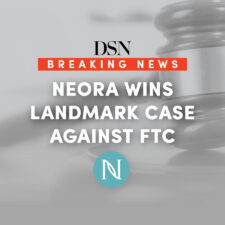
In the dynamic landscape of artificial intelligence (AI), direct selling companies are increasingly turning to AI-generated content to enhance efficiency and innovation. However, this transformative technology is not without its challenges. As regulatory frameworks, such as those proposed by the Federal Trade Commission (FTC) and the European Union (EU), come into play, direct sellers must also contend with ethical concerns and platform requirements aimed at ensuring transparency and accountability in the realm of AI-generated content.

In early October of this year, Neora emerged victorious from its almost seven-year battle with the Federal Trade Commission. The judge overseeing the case ruled that the FTC’s allegations against the company are invalid. As of this week, the deadline for submitting a notice of appeal has now passed, solidifying Neora’s victory and the new legal precedent their case now presents.

In a ruling that will surely be referred to as the new legal precedent, Neora has emerged victorious from its lengthy battle with the Federal Trade Commission. After seven years of investigation, four years of litigation and three years of negotiations, during which the FTC insisted on a nearly complete erasure of the company’s multilevel marketing structure, the court has rejected all of the FTC’s claims against Neora.

The Direct Selling Association released a statement regarding Neora’s lengthy battle with the Federal Trade Commission. The trade association applauded Neora's strong compliance efforts and reported that it filed two amicus briefs during the case to remind the courts of the legal standard to follow.

Neora has emerged victorious from its almost seven-year battle with the Federal Trade Commission. The judge overseeing the case ruled that the FTC’s allegations against the company are invalid.

The Federal Trade Commission announced a proposed rule that would ban fake reviews, prevent the suppression of honest negative reviews and stop the posting of positive reviews that received compensation.

In a unanimous ruling last week, the Supreme Court stated that the FTC has limited powers. In Axon v. FTC and SEC v. Cochran, the highest court looked at the constitutionality of both the prosecutorial and judicial functions residing within the same agency.

Christine Wilson, the only Republican commissioner for the Federal Trade Commission, announced her impending resignation and published a scathing opinion essay in The Wall Street Journal that detailed what she described as “a disregard for the rule of law and due process” by Lina Khan, the Democratic chair of the FTC.

The Direct Selling Association submitted comments to the Federal Trade Commission, stating the FTC should solidify its rulemaking as pertaining to earnings claims before it moves forward with any updates to the Business Opportunity Rule.

The Federal Trade Commission (FTC) has proposed a new rule that would ban employers from imposing noncompete clauses on workers. The proposed rule is based on the FTC’s preliminary finding that noncompete clauses constitute an unfair method of competition, which is in violation of Section 5 of the FTC Act.

The Federal Trade Commission published revised amounts for civil penalties that have been adjusted for new inflation rates, as required by the Federal Civil Penalties Inflation Adjustment Act of 2015.

What shaped 2022 and what to expect in 2023 and beyond. To say direct selling is in a time of transition would be an understatement. The environment is evolving as younger generations explore the opportunity.
- « Previous Page
- 1
- 2
- 3
- 4
- …
- 6
- Next Page »